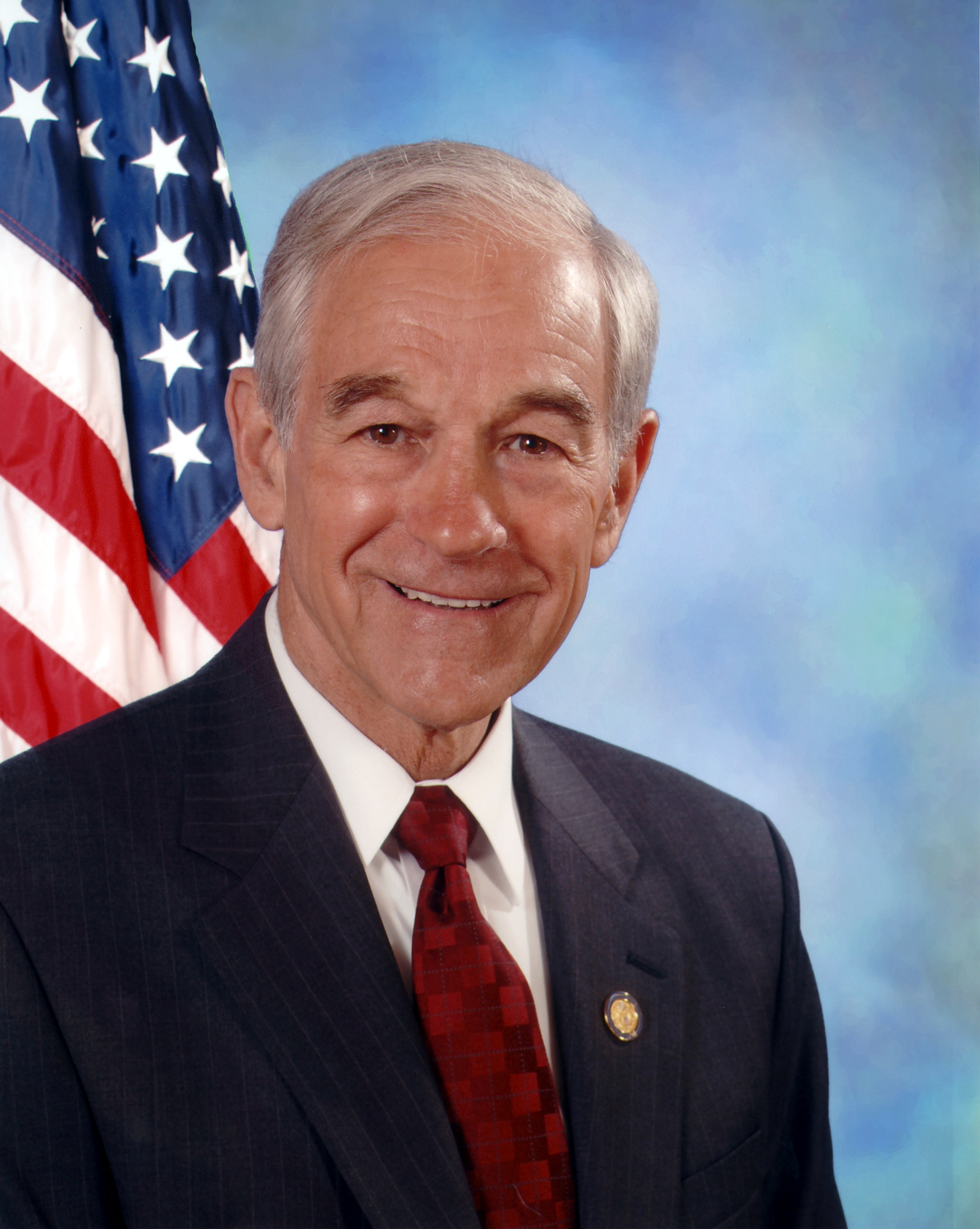 |
| Photo of Ron Paul's from Wikipedia. |
 |
| Image from Wikipedia. |
The newest media craze is Super Tuesday on March 6, and one of the states -- Virginia -- only has two of the hopefuls on its ballot: former governor of Massachusetts Mitt Romney and Congressman Ron Paul (sorry Rick Santorum and Newt Gingrich). Of them, Paul is considered by many in the media as an outcast. Although he is a Republican (he has been elected as such 12 times), he differs from them on issues such as his nonintervention stance (not isolationisim as many people claim).
So what does this have to do with science fiction? Well, he also is a libertarian, and libertarianism is no stranger to science fiction. The genre is full of libertarian views such as H.G. Wells' Men Like Gods, George Orwell's Nineteen Eighty-Four; Ayn Rand's Atlas Shrugged; Robert A. Heinlein's The Moon Is a Harsh Mistress (plus much of what he writes); and Larry Niven's, Jerry Pournelle's and Michael Flynn's Fallen Angels, among many others.
Have you read any of them? The stories are usually about an individual seeking liberty from a suppressed society. Although societies in the stories often are taken to the extreme for readership appeal, the libertarian philosophy is prevalent among science fiction stories, and you may not have even known it.
So what do you think about libertarian science fiction? Do you like it, hate it or don't care as long as you're entertained?
I never thought about it that way. i guess, in a way Science-fiction is all about libertarianism.
ReplyDeleteI have noticed it and maybe I am drawn to science fiction because of my libertarian leanings or maybe I have been influenced by my reading into having libertarian views, but the two mesh rather well. Ron Paul!
ReplyDeleteI liked the Moon is a Harsh Mistress. I never really thought about it being linked to a political point of view.
ReplyDeleteMitchell, there certainly is a lot of libertarianism in science fiction, but I think a lot of authors just use it because it makes a good read.
ReplyDeleteBudd, that's a good point. I wonder if the books actually influence readers' views.
M Pax, I decided to feature a picture of Heinlein's "Moon is a Harsh Mistress" because it is one of the best libertarian science fiction books. His "Stranger in a Strange Land" book would have alluded to the blog's title, though!
George Orwell and HG Wells were socialists, and thus very far from libertarianism (in the sense that you're using the word).
ReplyDeleteAnarchist, also, Ayn Rand was a objectivist and hated libertarians because she said they took some of her ideas, but her stories and some by H.G. Wells and George Orwell are considered libertarian science fiction.
ReplyDelete"Every line of serious work that I have written since 1936 has been written, directly or indirectly, against totalitarianism and for democratic Socialism, as I understand it."
DeleteGeorge Orwell, in 'Why I Write'.
PS I know that Libertarians claim, and seem to believe, that 1984 is 'on their side'. But I don't think there's any serious critical dispute that such a claim is wrong.
DeleteAnarchist, thanks for the info. Do you think George Orwell may have been a "libertarian socialist"? That's what many people argue, although he didn't call himself that.
ReplyDelete'libertarian' as in 'libertarian socialist' and 'libertarian' as in 'Ron Paul' are quite different things. In fact they share little more than the name.
ReplyDelete'Libertarian socialist' usually means basically the same as 'anarchist'.
'Civil libertarian' is something else again (meaning 'in favour of such things as gay rights and opposing censorship').
I'd say that Orwell was a 'civil libertarian' by the standards of his time, but certainly not the other two.
When more than two libertarians ever agree on how to define it, that will be the death of the movement!
ReplyDelete